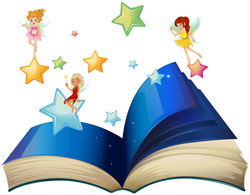fair use
An excerpt from The Fair Use Rule: When Use of Copyrighted Material is Acceptable
Under the “fair use” rule of copyright law, an author may make limited use of another author’s work without asking permission. Fair use is based on the belief that the public is entitled to freely use portions of copyrighted materials for purposes of commentary and criticism. The fair use privilege is perhaps the most significant limitation on a copyright owner’s exclusive rights. If you write or publish, you need a basic understanding of what is and is not fair use.
Uses That Are Generally Fair Uses
Subject to some general limitations discussed later in this article, the following types of uses are usually deemed fair uses:
- Criticism and comment — for example, quoting or excerpting a work in a review or criticism for purposes of illustration or comment.
- News reporting — for example, summarizing an address or article, with brief quotations, in a news report.
- Research and scholarship — for example, quoting a short passage in a scholarly, scientific, or technical work for illustration or clarification of the author’s observations.
- Nonprofit educational uses — for example, photocopying of limited portions of written works by teachers for classroom use.
- Parody — that is, a work that ridicules another, usually well-known, work by imitating it in a comic way.

